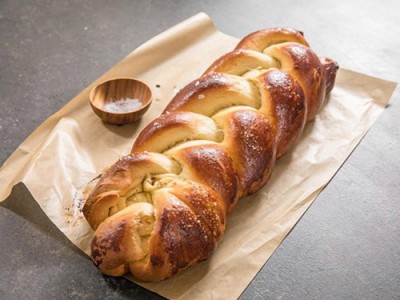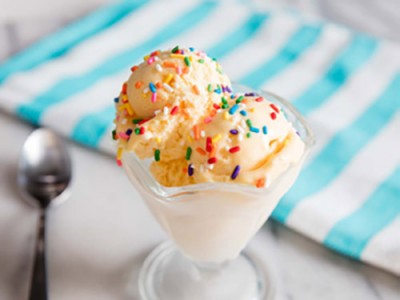



When Should Birkat Ha’mazon Be Recited Over A Cup Of Wine?
The Shulchan Aruch cites three opinions as to whether there is a requirement to recite Birkat Hamazon “Al Ha’kos” – over a cup of wine. This refers to pouring a cup of wine before Birkat Hamazon, then reciting Birkat Hamazon while holding the cup, and reciting the Beracha of “Ha’gefen” and drinking the wine after Birkat Hamazon. The first opinion cited by the Shulchan Aruch is that of the Rambam, who maintained that one is never required to recite Birkat Hamazon specifically over a cup of wine. The second view, held by several Rishonim, is that one should always recite Birkat Hamazon over a cup of wine. The third opinion, that of the Zohar (Parsha Pinchas), is that if three or more men are reciting Birkat Hamazon together, with a Zimun, then the leader should recite Birkat Hamazon over a cup of wine.
The Shulchan Aruch does not issue a definitive ruling on this issue, but the Ben Ish Hai and all the scholars of Kabbalah maintained that one should use a cup of wine when a Zimun is made by three or more men. Especially in our time, when wine is readily available and not very expensive, one should try, when possible, to recite Birkat Hamazon over a cup of wine when there is a Zimun. Rav Salman Mutzafi taught that reciting Birkat Hamazon over a cup of wine is more valuable than receiving the prestigious Aliya of “Shishi” in the synagogue one thousand times. Using a Kos Shel Beracha (a cup of wine over which Birkat Hamazon is recited) has the effect of bringing down great blessings, and so the importance of this practice cannot be overstated.
However, Hacham Bension Abba Shaul added that Birkat Hamazon should not be recited over a cup of wine in the case where two adult males and one minor (below the age of Bar Mitzvah) recite Birkat Hamazon together. Although Sephardic practice follows the opinion that a Zimun is recited in such a case, some Halachic authorities disputed this ruling. Therefore, since the Zohar indicates that a cup of wine should not be used when a Zimun is not recited, it is preferable not to use a cup for Birkat Hamazon in a case where one of the three males reciting Birkat Hamazon is a minor.
In conclusion: When three or more men are reciting Birkat Hamazon, with a Zimun, Birkat Hamazon should be recited over a cup of wine, and there is great spiritual value in doing so. However, if there are only two men over the age of Bar Mitzvah and one boy under the age of Bar Mitzvah, then even though a Zimun is recited, a cup of wine should not be used.
Leaving Bread On The Table For Birkat Hamazon
The Shulchan Aruch writes that if a person does not leave some bread from his meal on the table during Birkat Hamazon, he will not enjoy blessing. This comment is based upon a passage in the Zohar (Parasha Yitro). The Beracha that comes from Birkat Hamazon needs some bread on which to be bestowed, and thus one should leave over some bread from the meal and leave it on the table, and not eat all the bread from the meal.
If a person did eat all the bread before Birkat Hamazon, he should bring some other bread and put it on the table for Birkat Hamazon. There is some discussion among the Halachic authorities as to whether in such a case one may bring a whole loaf. The Shulchan Aruch writes that after one has finished eating, he should not place a full loaf on the table, as it was customary among idol-worshippers to place full loaves on the table to their gods. The Shulchan Aruch cites in this context the verse, “Ha’orchim La’gad Shulhan,” which describes how the pagans would “set the table” for their deities. However, the Mishna Berura cites those who maintain that this applies only if there are already pieces of bread on the table. If one then brings a full loaf, it appears as though he is bringing bread for a pagan god. But if one has no bread on the table, he may bring a whole loaf to have bread on the table for Birkat Hamazon. Others disagree and forbid bringing a loaf on the table after the meal under all circumstances, even if there is no other bread on the table. The Ben Ish Hai thus writes that if one has no bread to put on the table for Birkat Hamazon except for a full loaf, he should ensure to eat a small piece from the loaf so it will no longer be complete, and he may then place it on the table. This is the proper practice to follow in such a situation.
In conclusion: It is proper to leave some bread over from the meal and leave it on the table for Birkat Hamazon. If no bread remains from the meal, one should place other bread on the table. It is improper to place a whole loaf on the table after a meal, and thus if all one has in a whole loaf, he should eat a small piece from its no longer whole.
Is Ice Cream Considered A Food Or Beverage?
The Poskim discuss whether the Beracha of Hamotzi exempts ice cream served during the meal from the Beracha of Shehakol. This depends on whether ice cream is classified as a food or a beverage. If it is a food, then it is not a food normally eaten as part of a meal, and a separate Beracha must be recited. However, if ice cream were considered a liquid beverage, then it would be covered by the Hamotzi, which exempts all beverages (except for wine).
Hacham Bension distinguished between different types of ice creams. He classified dairy ice cream made from milk, and sherbets made from eggs as food, whereas sorbets and ices he considered liquids.
Hacham Ovadia Yosef disagreed and ruled that all ice creams are considered liquids. It would seem to follow that all ice cream would be covered by Hamotzi, like other beverages. Nevertheless, this is not so. Hacham Ovadia holds that Hamotzi only exempts beverages normally served as part of the meal. Ice cream is not a regular part of a meal, and is not covered by the Hamotzi, even though it is a beverage.
Hacham Ovadia’s children disagree as to their father’s personal practice on this matter. Hacham Yitzhak Yosef said that Hacham Ovadia would recite a Shehakol on ice cream during the meal, whereas Hacham David Yosef said that he would avoid a Safek Berachot (uncertainty in the Halachot of Berachot) and refrain from eating ice cream until after Birkat Hamazon. The best practice is to avoid the debacle and recite a Shehakol on something else or wait until after Birkat Hamazon to eat the ice cream.
The disagreements are only with regard to Hamotzi exempting the ice cream. However, all agree that if one made a Boreh Pri Hagefen and drank the wine that no Beracha is necessary on the ice cream. Hagefen exempts all beverages, even ice cream. Therefore, if one made Kiddush Friday night and drank the wine, he would not recite Shehakol on ice cream served during the meal.
In conclusion: To avoid uncertainty, one should wait until after Birkat Hamazon to eat ice cream, unless he drank wine during the meal, which would certainly exempt the ice cream from a Beracha.
Importance Of Reciting Asher Yatzar With Proper Intention
The Seder Hayom (Rabbi Moshe ben Machir, 16th Century, Tsfat) makes a remarkable statement regarding the Beracha of Asher Yatzar. He first writes that one should recite the Beracha carefully, word by word, having full intent and concentration on the meaning of the words, which are a praise to the perpetual kindness of Hashem who enables our bodies to function by expelling wastes. If not for this ability, no sum of money to pay the greatest doctors could help a person, and he would die. Hashem formed the various cavities and compartments in the body to retain the beneficial nutrients and expel the harmful waste, so that we could live in health and stand before Him.
He continues and declares that one who is scrupulous in reciting Asher Yatzar with this Kavana (proper intention) will never get sick his entire life and will not need the services of doctors or their treatments.
Situations Where One Would Not Recite A Beracha Before Drinking Water
It is well-known that before drinking water, one recites the Beracha of “ Shehakol.” What many people do not realize, however, is that in some situations, one should not recite a Beracha before drinking water. The Mishna in Masechet Berachot establishes that “Ha’shote Mayim Li’sma’o” – “somebody who drinks water to quench his thirst” – must first recite the Beracha of “ Shehakol.” The Gemara (44) infers from this comment that if a person drinks water to dislodge a piece of food stuck in his throat, he does not recite a Beracha. The Mishna speaks specifically of drinking water to quench one’s thirst to indicate that in a case where someone drinks water for a different purpose, such as to release something caught in his throat, no Beracha is recited.
A number of Halachic authorities, including the Gaon of Vilna and the Ben Ish Hai expand the Gemara’s ruling to include any situation where one drinks for a reason other than thirst. A very common example is somebody who drinks water when swallowing a pill. A person in this case would not recite a Beracha over the water, unless he is thirsty at that moment, in which case he derives enjoyment from the water and must therefore recite a Beracha. Likewise, if a person is dehydrated or at risk of dehydration, and he is advised to drink water despite the fact that he does not feel thirsty, he does not recite a Beracha before drinking. Since he drinks water to fill his body with water, rather than to quench thirst, no Beracha is recited. A similar case arises before fast days, when people often drink water to store in their bodies for the fast. A person who drinks for this purpose does not recite a Beracha, unless he happens to feel thirsty at that moment.
The work “Mishne Halachot” applies this Halacha to seltzer, as well. Seltzer, like water, does not have any flavor, and therefore, according to this view, one does not recite a Beracha over seltzer unless he drinks it to quench his thirst or he derives enjoyment from the taste. But if he drinks seltzer for one of the purposes mentioned above, such as to swallow a pill or to hydrate his body, then he would not recite a Beracha.
In conclusion: One does not recite a Beracha before drinking water unless he drinks for the specific purpose of quenching his thirst. If he drinks water for some other purpose – such as for swallowing a pill, in preparation for a fast, or to avoid dehydration – then he does not recite a Beracha, unless he happened to be thirsty at that moment, in which case the water also serves to quench thirst.
HALACHA CORNER
Typography
- Smaller Small Medium Big Bigger
- Default Helvetica Segoe Georgia Times
- Reading Mode




